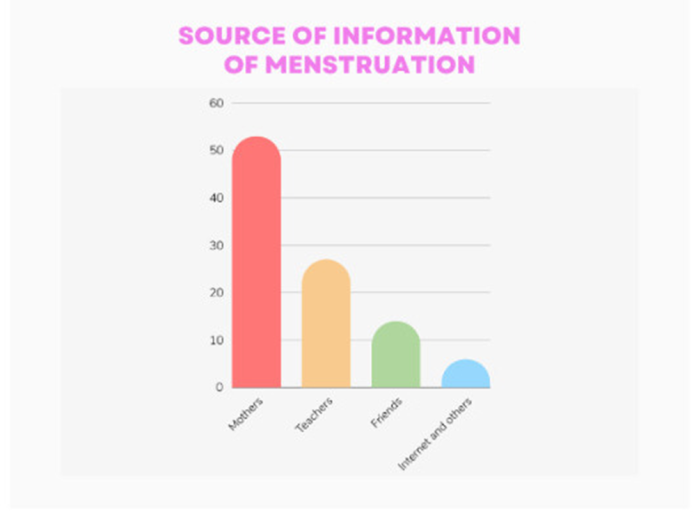Menstrual hygiene is one of the fundamental health and human rights issues, which are often overlooked not only in Pakistan but in many parts of the world. In Pakistan, where cultural taboos and limited resources compound the problem, “her machine – an innovative vending machine deployed at institutes, workplaces, and public spaces for the dispensing of feminine hygiene products” is paving the way for change by enabling on-the-go convenience. These sleek, user-friendly machines offer a discreet solution to an age-old problem, providing women with instant access to sanitary products whenever and wherever they need them. The “her machine” venture of Vending Central aims to radically change women’s health and empowerment while contributing to several Sustainable Development Goals (SDGs).
The Problem of Accessing Menstrual Hygiene Products in Pakistan
Access to basic menstrual hygiene products is alarmingly low in Pakistan. According to a report by UNICEF, only 21% of women have access to sanitary napkins. The majority resort to unhygienic alternatives such as cloth, rags, and cotton, which expose them to severe health risks, including reproductive tract infections. Due to the lack of proper menstrual products, not only physical health is affected but also hampers women’s and girls’ ability to participate in educational and economic activities. Addressing this issue directly aligns with SDG 3 of Good Health and Well-being, which aims to ensure healthy lives and promote well-being for all at all ages.
Cultural Taboos and Awareness
Menstruation is still considered a taboo in the Pakistani community. The onset of menstruation, particularly the first period, is often met with silence and stigma, leaving many young girls uninformed and unprepared. This cultural backdrop makes it challenging to discuss menstrual health openly, perpetuating myths and misinformation. By breaking these taboos, “her Machine” is also supporting SDG 5, which focuses on Gender Equality, aiming to achieve gender equality and empower all women and girls to reach their potential.

Solution through Innovation
“her machine” by Vending Central is strategically placed in public spaces such as schools, workplaces and hospitals across Lahore and Faisalabad, with recent expansion in Islamabad and Karachi. The machines are equipped with features like a user-friendly interface and discreet transaction processes, ensuring privacy and ease of use. This initiative also supports SDG 9 which is about Industry, Innovation, and Infrastructure by fostering innovation and building resilient infrastructure to support human well-being.
Current Reach and Impact
Since its inception, “her Machine” has made significant strides in improving menstrual hygiene management. To date, these machines have dispensed thousands of pads, facilitating hundreds of women’s lives. These efforts contribute to SDG 4 of Quality Education by ensuring that girls can attend school without interruption due to menstrual issues, and SDG 8, which is about Decent Work and Economic Growth, by enhancing the economic participation of women in the workforce.
Voices of Support
The initiative has garnered substantial support from various organizations. “The availability of sanitary products at the workplace has significantly increased productivity by reducing absenteeism and has empowered our female employees,” comments an HR manager of a leading denim factory. Moreover, the head girl of a local school shared, “Having access to ‘her Machine’ in our school has made managing periods much less stressful for students.” These testimonials underscore the broader social and economic benefits of improved menstrual hygiene management.

Future Goals
Looking forward, “her Machine” aims to expand its reach. Over the next five years, we plan to deploy machines in 2,000 additional locations, significantly increasing their impact. This expansion will not only cater to a larger demographic but also contribute to broader societal change by promoting menstrual health education and breaking down longstanding barriers. This ambitious goal supports SDG 11 of Sustainable Cities and Communities by making cities and human settlements inclusive, safe, resilient, and sustainable.

Conclusion
The journey of “her Machine” is more than just about providing menstrual products; it’s about challenging societal norms, fostering gender equality, and promoting public health. As “her Machine” continues to expand its reach and impact, it reaffirms its commitment to ensuring that every woman and girl has the dignity and opportunity to thrive, unencumbered by menstrual challenges. Through its efforts, “her Machine” is making significant contributions toward achieving multiple Sustainable Development Goals, paving the way for a healthier and more equitable future.


